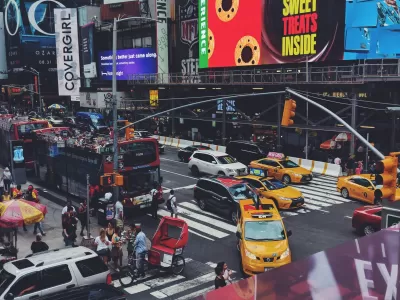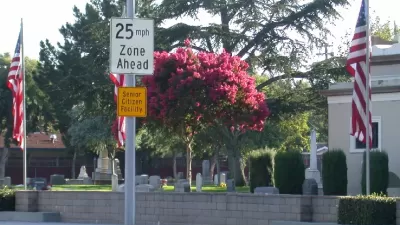The differences in the ways people who live in the city spend their time versus the way people who live in suburbs spend their time are few and small.

A new study authored by Eric Morris, associate professor of City and regional Planning at Clemson University, debunks some of the stereotypes about the differences between suburban and urban lifestyles.
An article by Richard Florida shares news of the new study, boosting the signal about the lifestyle similarities found in the two kinds of built environments.
Morris used data from the American Time Use Survey (ATUS), conducted annually by the U.S. Census Bureau and Bureau of Labor Statistics to analyze and compare the lifestyles of urbanites and suburbanites, producing findings that challenge the common stereotypes.
"First and foremost, it turns out there is very little difference in how urbanites and suburbanites who are demographically similar spend their time," explains Florida. "Both the composition of their activities and the amount of time they devote to them are remarkably similar."
More details of the study's findings can be found at the source article. The one key exception in lifestyle differences: time spent traveling, which includes commuting.
FULL STORY: Urban and Suburban Lifestyles Are More Similar Than You’d Think

Maui's Vacation Rental Debate Turns Ugly
Verbal attacks, misinformation campaigns and fistfights plague a high-stakes debate to convert thousands of vacation rentals into long-term housing.

Planetizen Federal Action Tracker
A weekly monitor of how Trump’s orders and actions are impacting planners and planning in America.

In Urban Planning, AI Prompting Could be the New Design Thinking
Creativity has long been key to great urban design. What if we see AI as our new creative partner?

Chicago’s Ghost Rails
Just beneath the surface of the modern city lie the remnants of its expansive early 20th-century streetcar system.

Baker Creek Pavilion: Blending Nature and Architecture in Knoxville
Knoxville’s urban wilderness planning initiative unveils the "Baker Creek Pavilion" to increase the city's access to green spaces.

Pedestrian Deaths Drop, Remain Twice as High as in 2009
Fatalities declined by 4 percent in 2024, but the U.S. is still nowhere close to ‘Vision Zero.’
Urban Design for Planners 1: Software Tools
This six-course series explores essential urban design concepts using open source software and equips planners with the tools they need to participate fully in the urban design process.
Planning for Universal Design
Learn the tools for implementing Universal Design in planning regulations.
planning NEXT
Appalachian Highlands Housing Partners
Mpact (founded as Rail~Volution)
City of Camden Redevelopment Agency
City of Astoria
City of Portland
City of Laramie





























